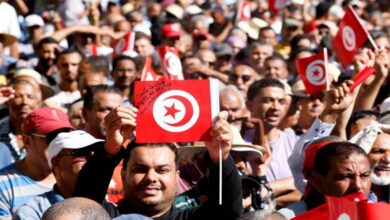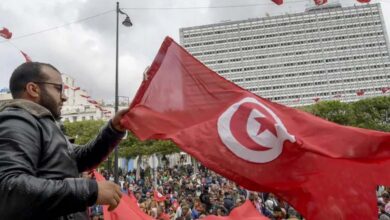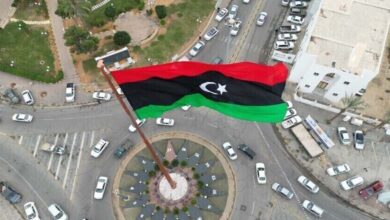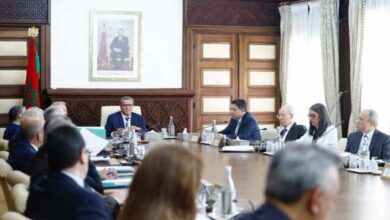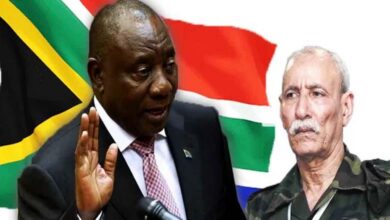Saied Accuses the Muslim Brotherhood of Fueling Tensions in Tunisia… Details

While the Tunisian judiciary has yet to rule on the case of conspiracy against state security and espionage targeting leaders of the Ennahdha movement, who have been in prison since February 2023, Tunisian President Kaïs Saied has accused “Brotherhood elements” of being behind the unrest in the country, affirming that the conspiracy against state security continues even behind bars.
During his supervision of a meeting of the National Security Council, Saied addressed the issue of those detained in what is known as the “conspiracy against state security,” calling for a fair trial for them. He said: “For a number of individuals who conspired against state security, and there are still others, it is time for them to be tried fairly.”
He added that procedures have been respected, but “manipulation thereof allows these individuals to conspire again against state security even from behind bars,” he said.
The Tunisian president also highlighted the influx of billions of dinars from abroad, benefiting those conspiring against state security through associations, confirming that one association owned 3 current bank accounts, which the Financial Analysis Committee should have investigated. He stated that it had received approximately $200,000 deposited in a bank and had also received a deposit of 1 million dinars, equivalent to $300,000.
The Tunisian president also affirmed that the recurrence of violent events in several neighborhoods was an abnormal phenomenon and not coincidental, emphasizing the need to address them and control all state facilities.
Saied stated that the aim was to weaken the state from within and fragment it into a series of provinces, insisting that the Tunisian state is unified and its laws must apply to everyone.
He argued that his country was experiencing a series of abnormal phenomena these days, such as exchanges of violence with bladed weapons, as well as children going out at night to burn tires, throw stones, and fuel tensions.
Saied said: “They wanted to strike the state from within, they want to strike society with drugs and violence, and there should be a preventive policy to prevent these battles from erupting, as happened in the solidarity neighborhood in the capital two days ago.”
In a related context, Saied confirmed that all set deadlines (political) had been respected in a short period, noting that the first of these was the Constitution of July 25, 2022.
He stated that one year after (the decisions to dissolve the Muslim Brotherhood system in 2021), Tunisia had a new Constitution after national consultations and after many parties called for social dialogue, noting that some had refused social and political dialogue.
He asked: “And today, why are they demanding dialogue, there is a Parliament and there is a second Council that will meet in the coming days and they represent the sovereignty of the people.”
He also stressed that if dialogue were to take place, it would be within state institutions, adding: “We are not in 2014, there are institutions and a Constitution and elections were held in full respect of deadlines,” referring to what happened during the period of Ennahdha‘s governance.






